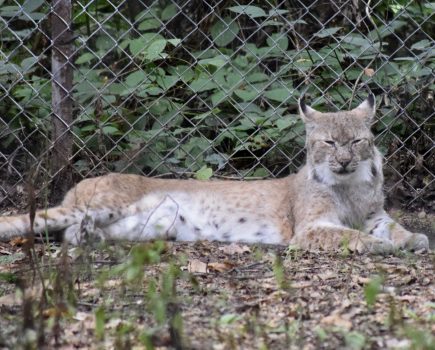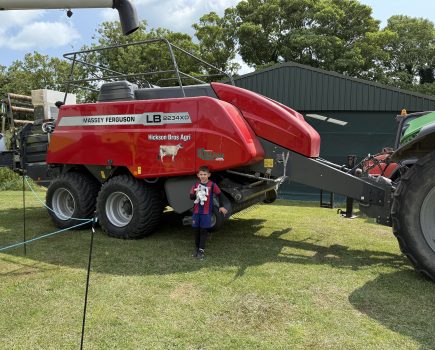As regular readers of this column will know, I’m not exactly the last of the big spenders when it comes to farm machinery. My combine is currently being serviced ready for its 34th harvest and I only own one tractor born this century.
That’s not to say I don’t like new kit. In fact, the opposite is true; I love it. The newest toy on my farm is a very smart mobile cattle crush recently bought with a bit of help from a Natural England grant. I so enjoy looking at its still sparkling galvanised coating that I take personal offence every time a cow does what cows tend to do when forced into a confined rigid metal structure that grips it around the neck.
No, the only reason I don’t very often buy new kit is because I’m mean. I just can’t cope with the idea that a machine will lose a fifth of its value the day I first put it to work. So, it’s only when a replacement is absolutely necessary that I’ll ring up a machinery dealer and start haggling with the poor devil.
Such a parsimonious attitude has left me feeling at odds with neighbours who have always seemed willing to splash out on an endless array of dazzling new kit. Combines, tractors, telehandlers, drills, discs. You name it, they own the latest model.
But is my tight-fisted attitude suddenly in the ascendancy? If the latest sales figures from the Agricultural Engineers’ Association are anything to go by, then the answer is definitely “yes”. New tractor registrations in June were just 869 units; 23% fewer than in June 2023. Even over the past six months, tractor registrations are down 13% compared with the same period a year earlier, the lowest in four years. These are national figures but in the South East it’s even worse, with tractor registrations down a staggering 43%.
Headline figures, of course, often disguise finer details. So, while tractor numbers are down, those tractors that are being sold are getting bigger and bigger. The number of tractors sold with horse power of 241 or greater increased by more than 40% compared to 2023.
The explanation for this is that large farms keep getting larger and these large farms are so committed to continued growth that buyers are ignoring short-term cashflow issues and simply investing for the long term.
I actually have no idea what a 241hp tractor costs and would rather not, as I think it would give me indigestion, but I take my hat off to arable growers with the confidence to buy such machines.
I do have to wonder, though, whether part of the fall in tractor registrations might not be to do with so many farmers signing up to the Sustainable Farming Incentive on a large scale, with some farmers reportedly putting huge acreages of good quality land into non-productive options. Who needs a brand new 241hp tractor to drill a legume fallow?
Anyway, one way or another, I don’t think I’ll be writing a cheque or signing a lease agreement for a big tractor any time soon, even though there is nothing that would give me a bigger thrill than to see it parked in my farmyard.
For more like this, sign up for the FREE South East Farmer e-newsletter here and receive all the latest farming news, reviews and insight straight to your inbox.







